
Results from the phase 3 COMPETE trial demonstrated that 177Lu-edotreotide improved PFS and ORR compared with everolimus in patients with GEP-NETs.

Your AI-Trained Oncology Knowledge Connection!


Results from the phase 3 COMPETE trial demonstrated that 177Lu-edotreotide improved PFS and ORR compared with everolimus in patients with GEP-NETs.

The FDA has approved pertuzumab-dpzb (Poherdy) as a biosimilar to pertuzumab (Perjeta) in breast cancer, based on a review of various attributes, including safety and efficacy data.

The Promega OncoMate MSI Dx Analysis System was previously approved to identify Lynch syndrome in patients with CRC.

Findings from 2 studies showed that onetime cell therapies can elicit complete tumor regression in patients with advanced epithelial cancers.

The developers plan to initiate the TELLOMAK 3 trial, which will evaluate lacutamab in Sézary syndrome and mycosis fungoides, in the first half of 2026.

While more work must be done to minimize toxicity, antibody-drug conjugates have demonstrated benefits for patients with glioblastoma.
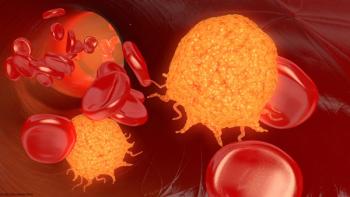
The newly approved dasatinib tablets are therapeutically equivalent and approved in the same indications as reference dasatinib.

The denosumab-bmwo products Stoboclo and Osenvelt have been approved as interchangeable with the denosumab products Prolia and Xgeva, respectively.

Combinations of antiangiogenic therapy with chemoimmunotherapy may feasibly be shifted forward in real-world extensive-stage small cell lung cancer care.

A unique cisplatin-containing intratumoral formulation achieved a median OS of 18.7 months in patients who were dosed at 40% or more of their TTB.

Pembrolizumab plus belzutifan is the first combination therapy to improve DFS vs pembrolizumab monotherapy in the adjuvant treatment of those with RCC.

The phase 3 KEYNOTE-689 trial showed a median EFS of 59.7 months with the pembrolizumab regimen in locally advanced head and neck squamous cell carcinoma.
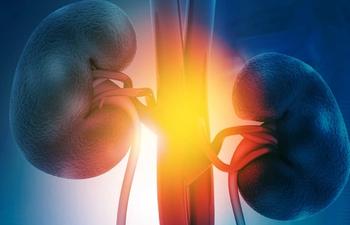
Belzutifan/lenvatinib also showed a favorable trend toward improvement for overall survival in this advanced renal cell carcinoma population.

Onco-dermatology enhances patient care and quality of life by addressing skin toxicities in breast cancer treatments through expert management and collaboration.

The anti–CTLA-4 antibody combination achieved an ORR of 34.8%, with 8 partial responses, in patients with pretreated microsatellite-stable mCRC.

Grade 3 or 4 AEs were experienced by 42.9% of patients who received cisplatin plus radiation compared with 15.3% of patients who received radiation alone.
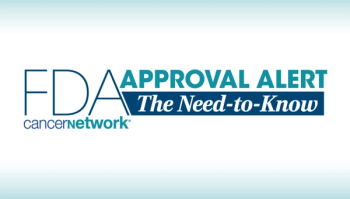
Results from the phase 1/2 AUGMENT-101 trial support the FDA’s decision for approving revumenib in this NPM1-mutated, relapsed/refractory AML population.

Belantamab mafodotin has been approved for multiple myeloma, despite the FDA’s ODAC voting against the treatment due to ocular toxicities.

Exa-cel displayed MCID-exceeding, sustained mean changes from baseline across various HRQOL-related scores in transfusion-dependent β-thalassemia.

Patients with full-thickness or outer full-thickness stromal invasion following surgery had improved PFS when treated with SIB radiotherapy.

Enfortumab vedotin plus pembrolizumab before and after surgery improved EFS vs surgery alone in patients with MIBC in the phase 3 EV-303 trial.

The agency has set a PDUFA date of April 10, 2026, for the decision on RP1 plus nivolumab in patients with previously treated advanced melanoma.
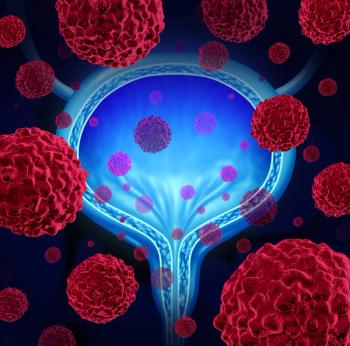
Disitamab vedotin plus toripalimab achieved a median 13.1-month PFS and median 31.5-month OS in patients with HER2-expressing advanced urothelial carcinoma.

Results from the phase 3 KEYNOTE-B96 trial showed favorable results with pembrolizumab-based therapy in this ovarian cancer population.

Venetoclax with bortezomib and dexamethasone led to a median PFS of 23.4 months compared with 11.4 months with placebo in patients with R/R MM.

Sevabertinib monotherapy was deemed tolerable across various cohorts of patients who were pretreated and treatment-naïve with HER2-mutant advanced NSCLC.

In lower- and middle-income countries, accessibility, cost, and talent are obstacles to broadly implementing cellular therapeutics into cancer care.
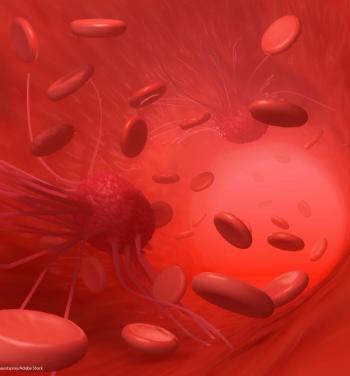
The EO2463 off-the-shelf immunotherapy achieved an overall response rate of 46% in patients with follicular lymphoma considered to be in the “watch-and-wait” setting.
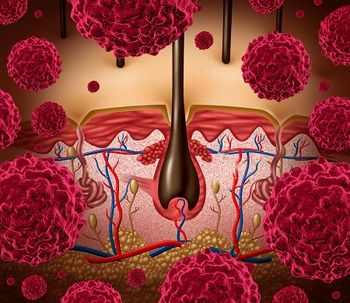
Single-agent pembrolizumab achieved an ORR of 89%, with a 37% CR rate, in patients with advanced desmoplastic melanoma in the phase 2 SWOG S1512 trial.

The novel PET imaging agent detected significantly more PSMA-positive prostate cancer lesions vs SOC in patients with low PSA levels.